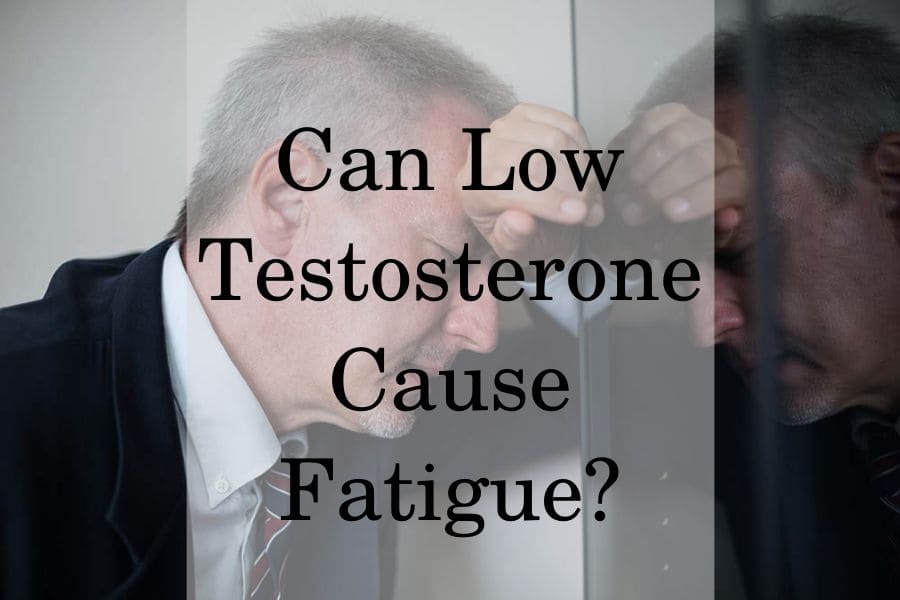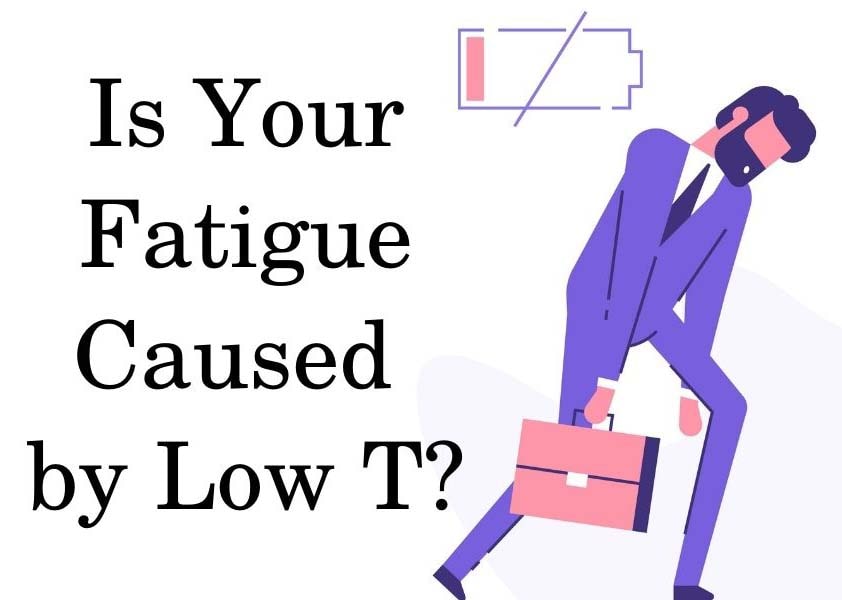Chronic fatigue or tiredness is one of the most common complaints in men with decreased testosterone levels. Before starting TRT, our patients often report low energy levels as the most debilitating symptom of their condition.
That’s because persisting fatigue can have a detrimental effect on mood, personal life, productivity, work, and even income. Diagnosing and treating the underlying cause is of paramount importance to physical and emotional well-being.
Chronic fatigue does not go away after regular rest and a good night’s sleep. Therefore, it should not be confused with physiological tiredness that arises after prolonged work and is easily reversible.
How does low testosterone cause fatigue?
The majority of men with low testosterone complain of low energy levels and fatigue. According to one study, lack of energy was the most common symptom, reported by 88% of men with testosterone deficiency. Most of the patients rated chronic fatigue as having a significant detrimental impact on their quality of life.
There are complex mechanisms linking low T levels to chronic fatigue. The symptom is the result of the changes in the body that occur in hypogonadism, such as slower metabolism, muscle loss, mood disturbances, anemia, and sleep problems.
The only way to find out whether chronic fatigue is caused by low testosterone is to visit a licensed medical doctor such as an endocrinologist. And determine if patients’ complaints are hormone-related by assessing the symptoms and measuring serum testosterone levels.
If two separate tests reveal that T levels are under 300 ng/ml – you have male hypogonadism. After that, a doctor should assign treatment for your complaints.
What can help with fatigue caused by low t?
Currently, the most effective treatment option for the symptoms of low testosterone, such as fatigue and low energy levels, is testosterone replacement therapy (TRT). It involves taking exogenous testosterone which can raise serum T back to normal levels.
Usually, the first benefits of testosterone therapy occur after the 3rd week and include improved mood and libido. It takes 9-12 weeks of testosterone treatment to feel the reduction in fatigue and a burst of energy.
While on therapy, you will also experience an increase in muscle mass, bone density, and fat loss
Other symptoms of low T associated with fatigue
Lack of motivation and sleepiness are other common symptoms of hypogonadism that usually accompany the fatigue. For example, patients with low T often complain of lethargy and falling asleep right after dinner. Also, high cholesterol and low T are very related.
Besides, one study reported that hypogonadism can lead to weaker muscles. Patients had significantly lower muscle strength when compared to healthy men.
Low testosterone is also known to increase the risk of anemia. The condition is defined as low red blood cell count and one of its hallmark symptoms is fatigue.
Other signs of low T include fat gain, low libido, erectile dysfunction, body hair loss, anxiety and depression. Men who suffer from cluster headaches and migraines may also experience low testosterone during the episodes. However, headaches are not a typical symptom in patients with low T.
Can low testosterone cause adrenal fatigue?
Adrenal fatigue in men is characterized by abnormal cortisol levels, which can cause a decrease in testosterone levels. Because of this, adrenal fatigue in men can be mistaken for low testosterone due to the similarity of symptoms (low sex drive, fatigue, and loss of muscle mass).
How to regain your energy levels
If you are otherwise healthy, various lifestyle changes may significantly reduce your symptoms of low energy levels and fatigue.
1. Add light to moderate exercise
Start exercising at least several days per week to increase your oxygen capacity, boost your hormone levels and improve your sleep.
2. Avoid any restrictive diets
Don’t follow diets that force you to exclude entire food groups, a great example is the effect of the keto diet on testosterone levels in men. These dietary patterns can lead to vitamin and mineral deficiencies in the long term, which often result in chronic fatigue.
On the other hand, you shouldn’t overindulge in caloric food either. Excessive food intake can lead to obesity, obstructive sleep apnea, and diabetes. Instead, focus on consuming a balanced and diverse diet that is mainly based on whole unprocessed foods.
3. Contact the doctor
If you suspect that your symptoms are due to an illness, make sure to consult with an experienced medical specialist. A doctor will determine the exact cause of your complaints and prescribe the appropriate treatment for the condition.
Get a free consultation with our medical expert for any questions about hormone replacement therapy


